Cork Coasts; ‘I’ve seen people cling to rocks for dear life...’ says Youghal RNLI volunteer
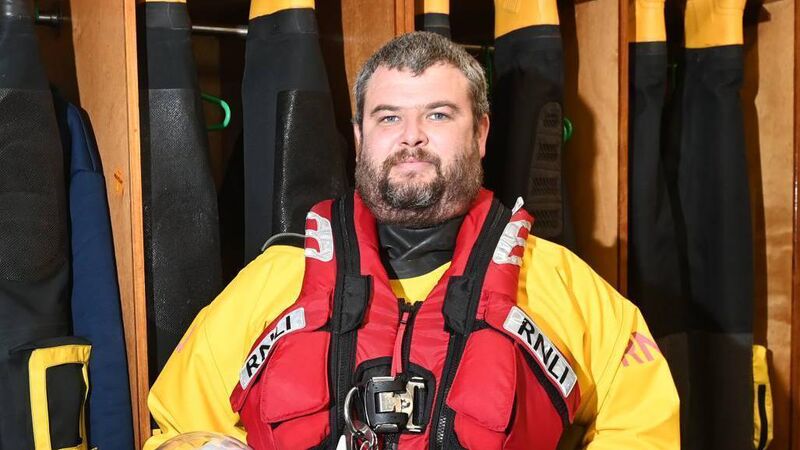
John Griffin Jnr. Helm at Youghal RNLI.
“COME on board!” John Hearne, Lifeboat Operations Manager, yells as he welcomes me into the Youghal station, located on the pier next to the Mall Arts Centre.
The RNLI flag is flying high and fishing boats are bobbing on the blue waves in the distance.
“You came on a fine day!” says John.
There has been a lifeboat station in the town for 165 years. What is John’s role?
“I am responsible for the overall operations at the station,” he says. “Also, I am responsible for the day-to-day running of the station and I am designated to assist the Coastguard.”
John shows me the Gordon and Phil B class Atlantic 85 vessel, assigned to Youghal lifeboat station in 2016, which can accommodate four crew. It was donated by a Gwenda Bull, of Brighton, England, and named after her parents.
John himself was in the UK earlier this year for a momentous occasion.
“Myself and our lifeboat mechanic, Eric Brooks, had a fantastic day on March 4 at Westminster Abbey celebrating the 200th anniversary of the RNLI,” says John.
Youghal Lifeboat Station is part of the rich history of the RNLI, and crews here have been awarded six RNLI medals for gallantry.
To save lives, RNLI crew take on the challenges that the roughest of seas throws at them. Why do they do it?
“Growing up, I had always been involved with the sea, living in a community among fishermen,” says John Griffin, who recently retired as Lifeboat Operations Manager (L.O.M) John was a member of the RNLI for 45 years.
“I was always angling in Youghal and I decided to give something back,” he explains,
My first trip out to sea on the lifeboat was in November, 1987, two years before the station celebrated its 150th anniversary.
“Over the years, I have been involved in many sea rescues in many different situations and different weather situations.”
One successful sea rescue was certainly different: John recalls his pager going off when a cow needed rescuing off the cliffs of Ardmore!
“The animal got caught in an inlet and had no way back,” he says. “We got a call to assist in the rescue and went out and put a lifejacket around the cow’s neck and pulled her back to the beach where the farmer was waiting.”
How did they secure the animal?
“It was like a tug of war between us, but we eventually managed it!” says John.
John Griffin Jnr - like father, like son, following in his dad’s footsteps, saving lives at sea - explains what happens when his pager goes off.
“I am the helm, which means I can drive the boat,” says John. “The pager can go off any time anywhere. I make sure the boat is fuelled before I get kitted out to take part in a sea rescue.”
Time is of the essence.
“We drop whatever we are doing to answer the call,” says John.
Liaising with the coastguard, we all decide between us what we are doing. Communication and trust between the crew is very important.
Every crew member follows a structured programme of competence-based training and assessment. This covers an agreed range of skills and competencies necessary to complete particular tasks. Safe operation procedures cover everything from boat handling, search and rescue, and navigation, to radar training, radio communication and casualty care.
“Crew training is a continuous process and never stops,” says John.
He has seen it all.
“I’ve been involved in numerous hairy rescues in bad weather; I’ve seen people clinging to rocks holding on for dear life. Being able to save lives at sea is hugely satisfying for all involved.
“Of course, we experience the tragic side at times and that is sad.”
John says often people get complacent about the sea in good weather.
“People get more daring and want to have more fun when the sun is shining,” he says.
Keeping an eye on weather and changing conditions is very important if you’re swimming or heading out to sea aboard a craft.
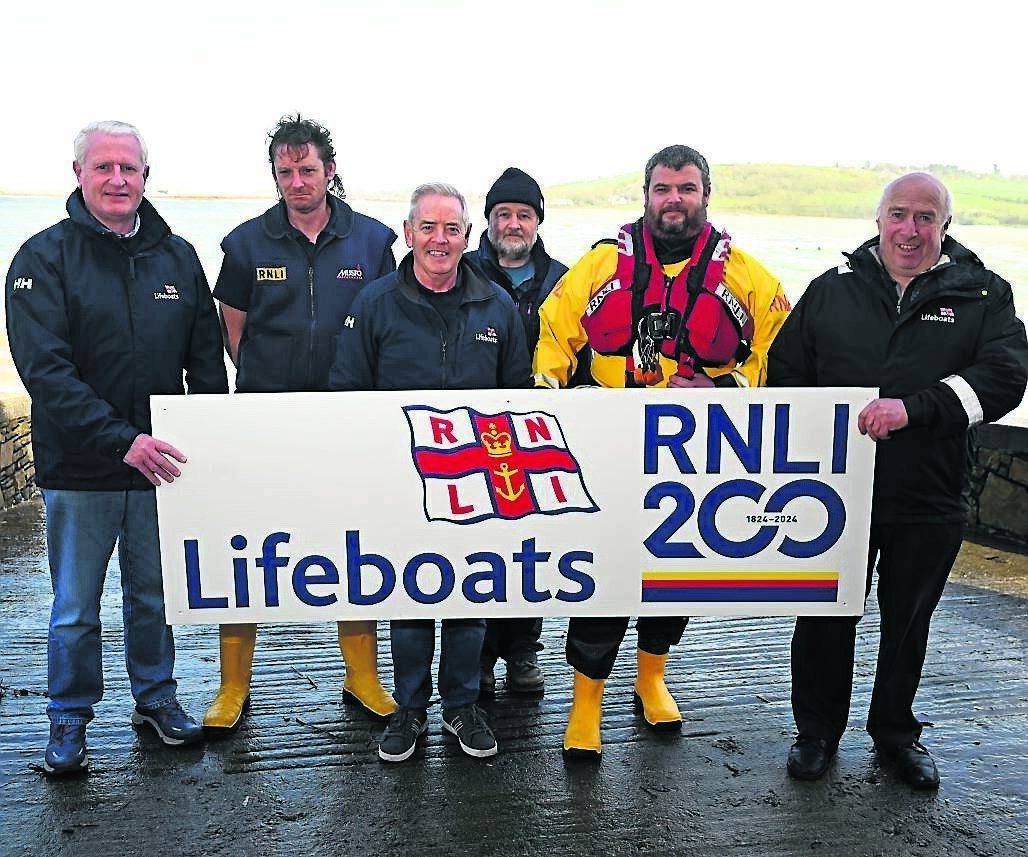
Fellow RNLI volunteer Mark Nolan has a sea-faring background too.
“My grandfather and my father were both sea-faring people,” says Mark, a retired garda who has been involved in the RNLI for 27 years.
“Going to sea, you need certain capabilities,” adds Mark, who is part of the Launching Authority Team.
“Health and safety is always a crucial part of training for volunteers, as is keeping up with the changes in technology.”
Timing is everything.
“Response immediately to a call-out is crucial,” says Mark. “And we are trained to give casualty care if required.”
His training and commitment has often come into play over the years.
“I remember one summer when two brothers were out in the harbour on a home-made raft,” he says.
“It was about 5pm in the evening. There was a northerly wind and an ebbing tide. An onlooker on the beach alerted us. It had got very cold. We located the raft, spotting it in the water.”
The brothers were in the chilly sea.
“We picked them out of the water,” says Mark. “They lived to tell the tale.”
When Mark’s pager goes off, he hits the ground running.
“The adrenaline is running,” he says. “It becomes second nature to you.”
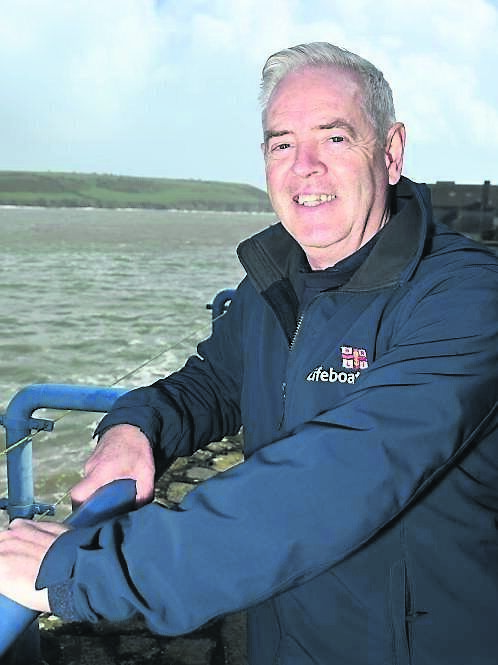
When RNLI crew volunteer Sean Slattery moved back to Youghal in the 1990s, he had all the skills needed to sign up for saving lives at sea.
“I come from a fishing sea-faring background,” says Sean, who holds the title of Senior Helmsman.
I had the all the skills to become a volunteer with the RNLI. I was fit and healthy and willing to learn.
“With the specific training involved in becoming a lifeboat member, I progressed and I was very willing to volunteer,” adds Sean, who is a healthcare worker.
Keen powers of observation are just one necessity.
“I live in that green house across the road,” says Sean, showing me his home. “I remember one Sunday afternoon seeing a boat with a cabin in front with two adults on board heading out the harbour. It was around lunchtime. I was reading the paper and time passed but I had an awareness that there was no sign of the boat returning. Where had they gone, I wondered?”
Sean got a call-out on his pager.
“At 7pm, the boat was in trouble under Black Ball Head. I took off out,” he says.
There were three children on board as well as two adult. I took them on board the lifeboat and we headed back to shore. They were very grateful.
The RNLI crew at Youghal Lifeboat Station are very grateful to be able to give something back. “All our volunteers play a vital role in saving lives at sea,” says Sean.
All Youghal’s lifeboat men and women give up a lot of their time freely to train and man the lifeboats. They have to regularly attend courses on navigation, first aid, and VHF radio procedure, as well as doing practical courses on boat handling and general seamanship. They are on call 24 hours a day 365 days of the year.
As Mark Nolan says: “It becomes second nature.”
On Friday, our RNLI series concludes as we visit the Union Hall station.
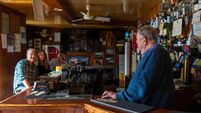


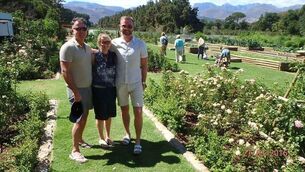
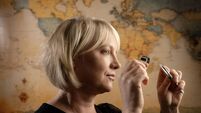


 App?
App?


